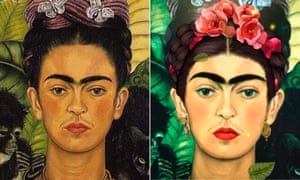Snapchat photo filters linked to rise in cosmetic surgery requests.
During the research about the impact of photo filters, I have found an article plastic surgeons reporting that patients are coming to them with selfies of themselves edited using the filters on Snapchat or Instagram and asking to look more like the retouched photo. The trend, labelled ‘Snapchat dysmorphia’, suggests some people are experiencing a worrying blur between reality and social media. Reference
From Instagram to Snapchat, even apps made to just "beautify you," there is no shortage of photoshop features at your fingertips. But, constantly changing your photos to show a slightly better version of yourself, can have a psychological impact.
It's being called "Snapchat dysmorphia," and some say it can lead to body dysmorphic disorder, which is an "excessive preoccupation with a perceived flaw in our appearance."
A recent article in the JAMA Facial Plastic Surgery Journal says more and more patients are bringing altered photos into their offices, and looking for permanent, surgical options to improve their selfies.
Of course, people with a true case of body dysmorphia, will likely never be satisfied with their outward appearance. Seeking out psychological help is a better option than going under the knife for those patients.
The report says these filters are sometimes triggering body dysmorphic disorder, a mental illness that leads to compulsive tendencies such as excessive beauty procedures, wasting hours obsessing over non-existent flaws and withdrawing from social activities.
The trend is particularly concerning to doctors because filters on Snapchat provide not just idealistic standards of beauty but entirely unhuman ones, presenting “an unattainable look and are blurring the line of reality and fantasy for these patients”, according to the report.
Separately from patients specifically trying to look like their selfies, over half of plastic surgeons also report patients saying that they are seeking procedures so they can look better in selfies, according to the report.

A photo of Frida Kahlo that Snapchat created for International Women’s Day in 2017, which was criticised for lightening her skin and making her features appear more symmetrical. Composite: Alamy & Snapchat
Airbrushed, unrealistic representations of women in fashion magazines have been blamed for the increasing incidences of eating disorders and body dysmorphia in women and teenage girls.
But over the past decade, another more pernicious distortion of real bodies has been underway, with people editing their own photos to make themselves appear better looking, yet posting the photos as if they were candid shots. Third-party apps like Line Camera and Facetune gave users easy tools to make their faces appear thinner, more symmetrical and blemish-free, before posting them to Facebook. One 2015 survey found that despite over two-thirds of female respondents think it’s wrong for magazines to airbrush pictures, 57% admitted to regularly editing their own social media pictures to enhance their appearances. And the trend has rapidly increased with the rise of pre-built filters on apps like Instagram and Snapchat that make faces appear almost cartoonishly perfect.
The new report finds that the kinds of facial surgery people are requesting has changed too. Previously, nose jobs were the most common request, but now, the authors say, people specifically seek procedures that will have effects similar to selfie filters, such as nasal and facial symmetry, rhinoplasties, hair transplants and eyelid surgical procedures.
This is the latest in a slew of recent studies that suggest young people are finding it increasingly difficult to distinguish between real life and social media, and that is having a negative impact on their wellbeing. A study last year in the American Journal of Preventive Medicine found that people who were regular users of social media were twice as likely to feel lonely than those who were light users. Another study released last year that interviewed 1,500 15-to-24-year-olds found that social media, especially Instagram, deepened their feelings of anxiety and inadequacy.

No comments:
Post a Comment